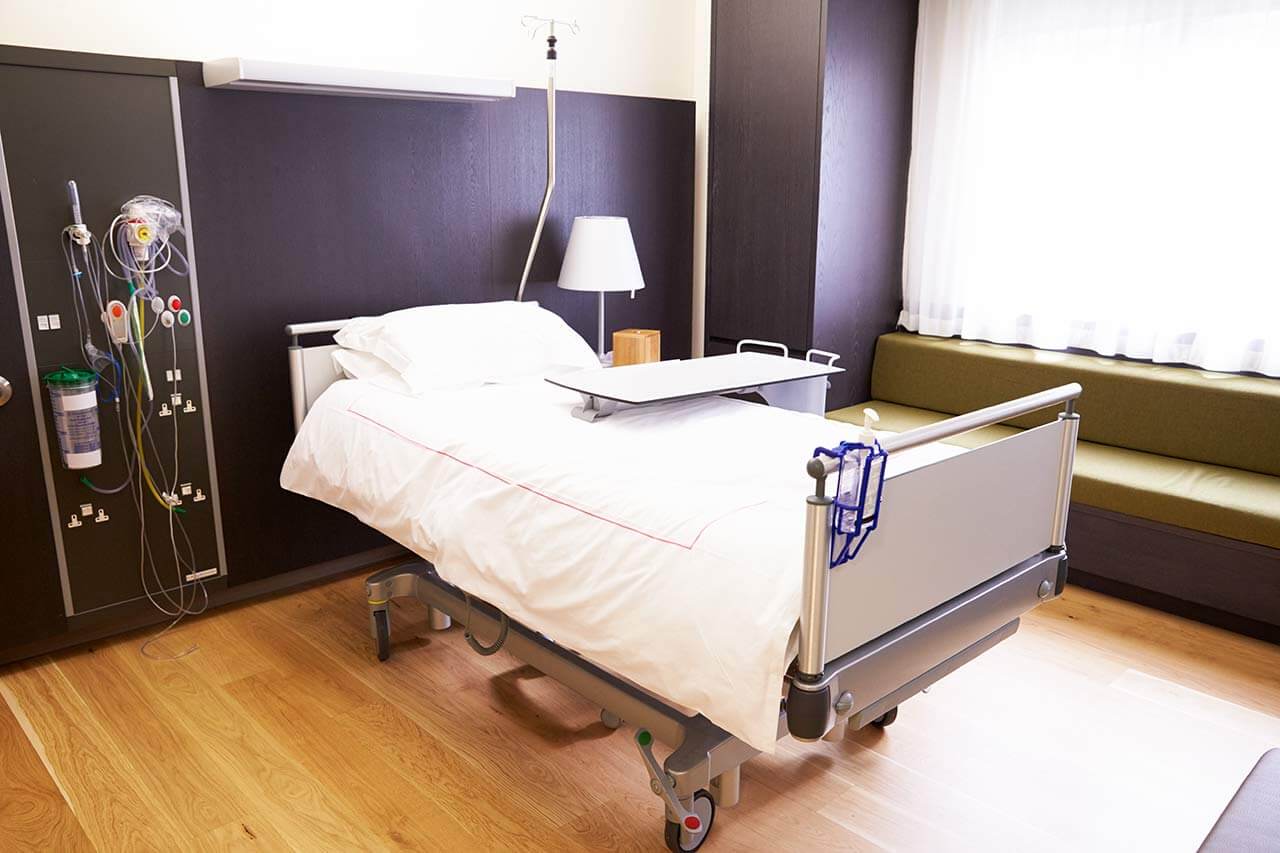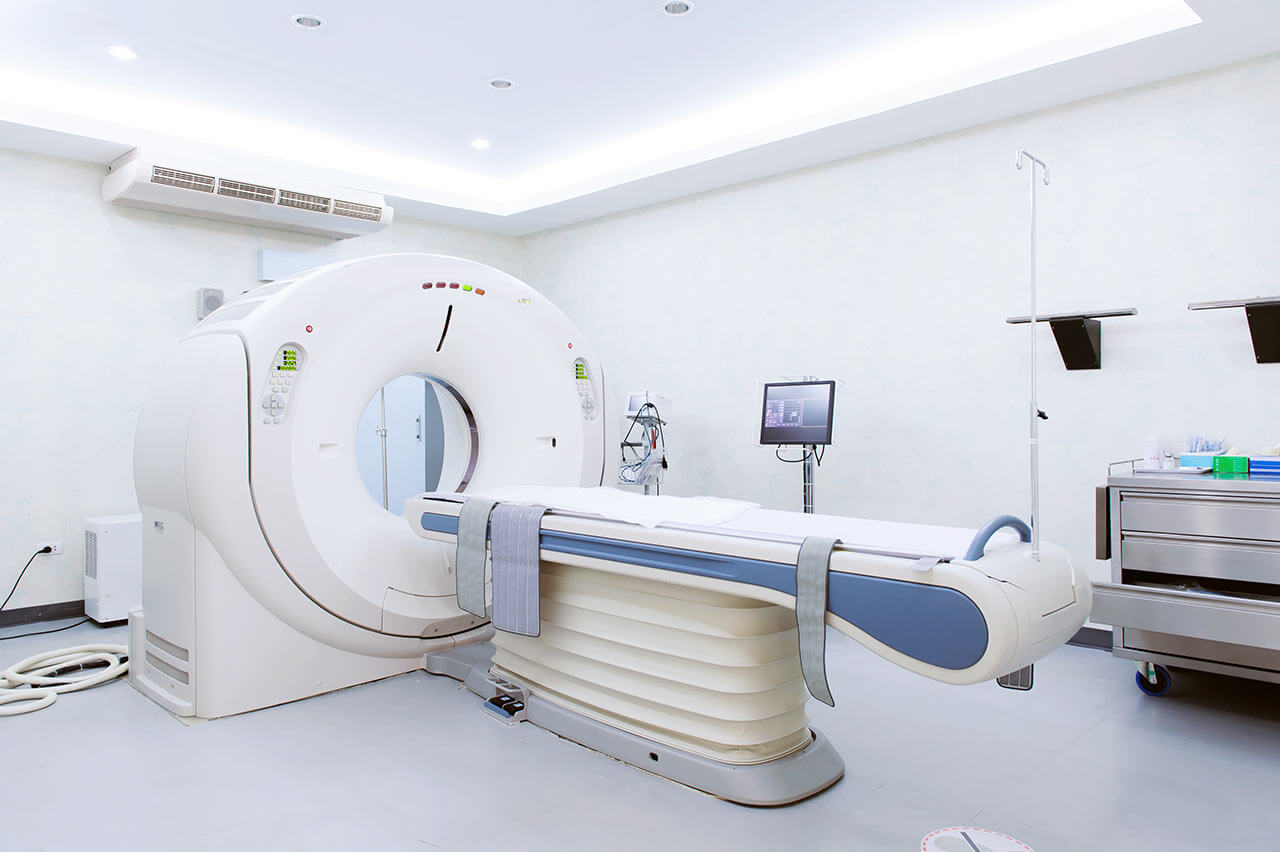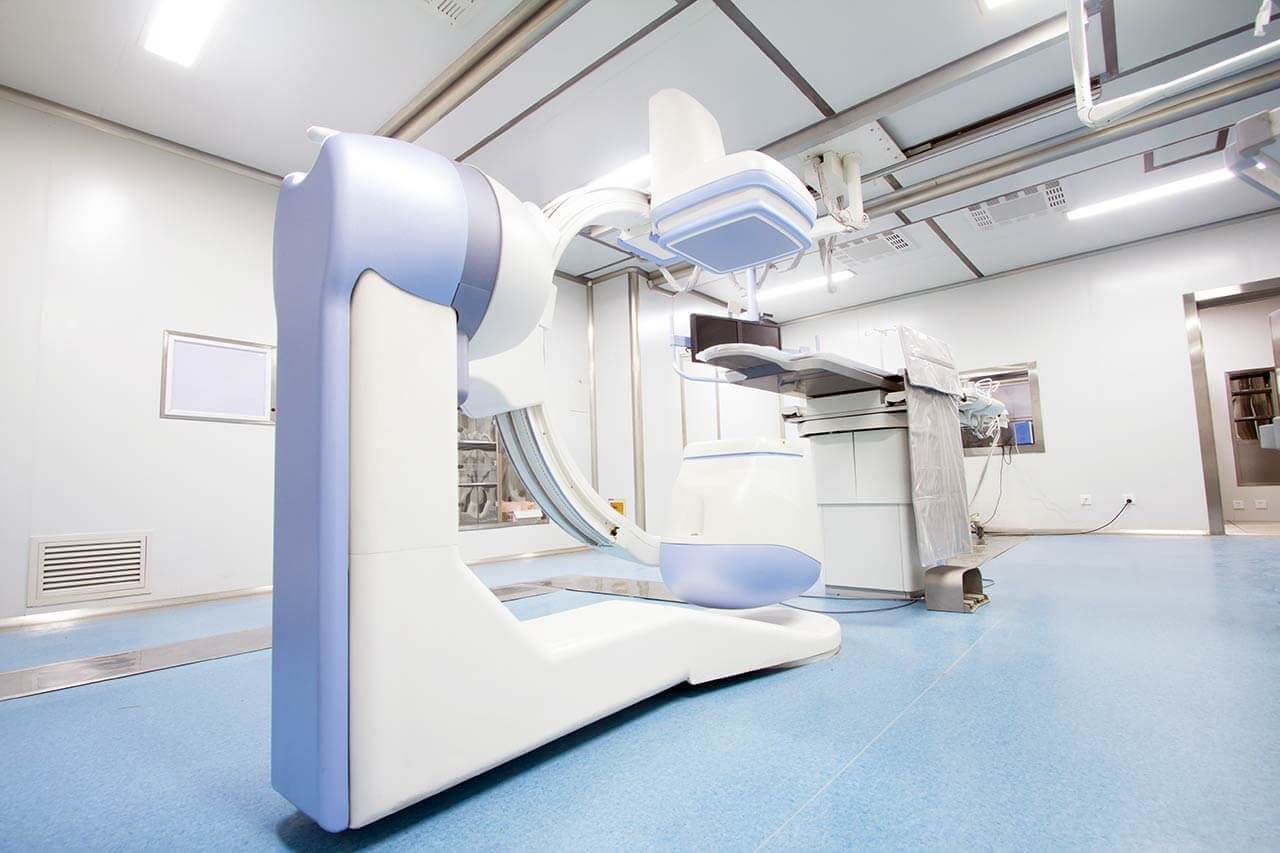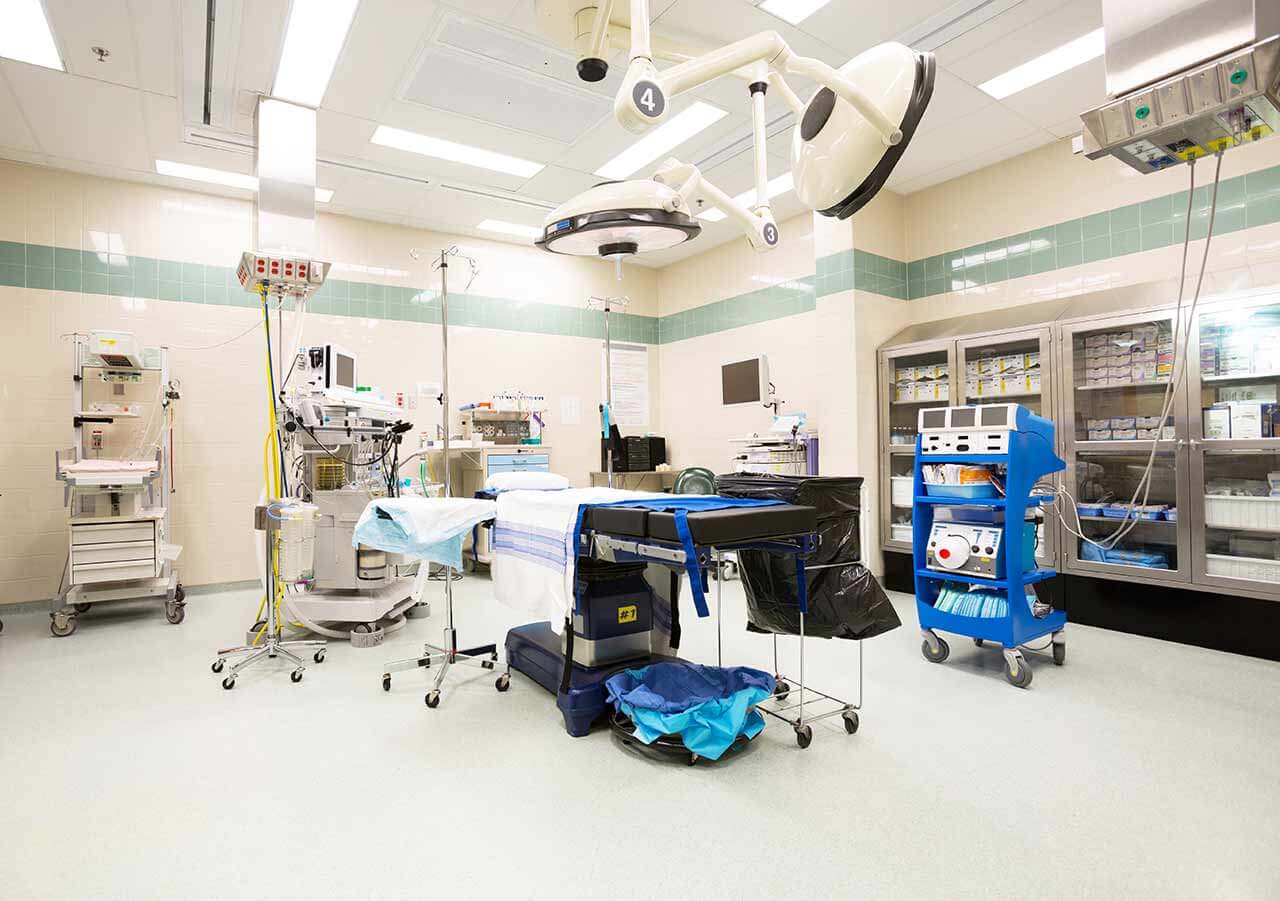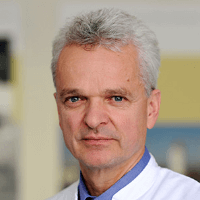
The program includes:
- Initial presentation in the clinic
- case history collection
- general clinical examination
- laboratory tests:
- complete blood count
- biochemical analysis of blood
- TSH-basal, fT3, fT4
- differential blood count
- inflammation indicators (CRP, ESR)
- indicators of blood coagulation
- CT/MRI scans of the whole body
- needle biopsy of the bone marrow
- biopsy and histological examination of CSF
- examination by experts of:
- cardiology
- otolaryngology
- immunology
- ophthalmology
- registration in the European bone marrow donor base
- conducting high-dose chemotherapy
- allogeneic bone marrow transplantation from
unrelated donor - the cost of blood products
- isolation by neutropenic precautions
- symptomatic treatment
- control examinations
- the cost of essential medicines and materials
- nursing services
- full hospital accommodation
- explanation of future recommendations
How program is carried out
During the first visit, the doctor will conduct a clinical examination and go through the results of the available diagnostic tests. After that, you will undergo the necessary additional examination, such as the assessment of liver and kidney function, ultrasound scan, CT scan and MRI.
Also, the doctor will conduct a bone marrow biopsy followed by cytological examination of the harvested material. This will help him to determine the histological features of your bone marrow (in particular, identify HLA system antigens) and select a suitable donor. The donor can be a family member or a person from the bone marrow registry. In the second case, the donor material is stored in a bone marrow bank.
Before the procedure, you will receive chemotherapy, if necessary in combination with radiation therapy. The course of chemo- or chemoradiation therapy lasts from 2 to 8 days.
The bone marrow transplant procedure is an intravenous infusion, i.e. the healthy bone marrow will be injected through a catheter, intravenously. You will stay in your room during the procedure. A bone marrow transplant is completely painless and does not require anesthesia.
During the period of healthy bone marrow engraftment, you will stay in a sterile ward. This is a necessary precaution because during this time your immune system is very weak and cannot withstand environmental pathogens. The risk of bleeding is also quite high, so you will be advised to avoid mechanical damage.
A relative or other close person may stay in the ward with you. You will not be allowed to go outside the department and leave your ward often. The rehabilitation period can last from 1 to 2 months.
When your complete blood count returns to normal, your doctor will schedule your discharge from the department. You will receive information about the rules that you will need to follow at home, the frequency and type of control examinations, and subsequent treatment measures. You will also receive a detailed medical report, which will reflect the entire course of treatment.
Required documents
- Medical records
- Bone marrow biopsy results (if available)
Service
You may also book:
 BookingHealth Price from:
BookingHealth Price from:
About the department
The Charite Comprehensive Cancer Center at the Charite University Hospital Berlin offers a comprehensive range of services for the prevention, diagnosis, and treatment of all types of malignant diseases. The Charite Comprehensive Cancer Center was founded in 2008. Today, it is the largest oncology clinic in Europe certified according to the standards of the German Cancer Society (DKG). The center treats more than 14,000 cancer patients annually, including patients with the most complex and rare malignancies. The center's specialists develop a personalized treatment plan for each patient, which is compiled by a tumor board and physicians of related specialties. The center guarantees high-quality treatment of oncopathology to the patient, with special attention being paid to compassionate care, professional psychological support, and communication in self-help groups. In addition to its successful clinical practice, the Charite Comprehensive Cancer Center is also very active in research, with more than 300 research projects carried out each year, resulting in the introduction of new effective treatment methods into clinical practice worldwide, saving the lives of a large number of patients. The Charite Comprehensive Cancer Center treats many patients from Germany and other countries. Patients will find here all the resources they need to be treated with both proven classical and advanced innovative therapeutic approaches. The Head Physician of the center is Prof. Dr. med. Ulrich Keilholz.
One of the fundamental principles of medical care at the center is a personalized approach to each patient. At the stage of developing a cancer treatment plan, doctors take into account all the features of the clinical case, on the basis of which the most effective set of therapeutic modalities is selected. Tumor molecular profiling plays a particularly important role in this process. This is a highly accurate laboratory diagnostic method used to obtain detailed data on a malignant neoplasm in order to select drugs with the highest efficacy profile for the patient. The results of these tests are discussed in an interdisciplinary tumor board with the participation of the center's leading specialists.
The Charite Comprehensive Cancer Centre has modern instrumental diagnostic rooms; in cooperation with the Departments of Radiology and Nuclear Medicine, high-precision imaging studies and radioisotope diagnostics are performed, including all advanced types of CT, MRI, PET/CT, PET/MRI, and SPECT/CT. The leading specialists of the centre offer second opinion, which is critical when the patient has doubts about the correctness of the prescribed course of treatment: in many cases, patients seek medical help in the advanced stages of cancer, when it is extremely important not to waste precious time and to receive effective treatment, because a mistake in the choice of therapeutic method can cost the patient his or her life.
The Charite Comprehensive Cancer Center also offers the services of a Section for Psycho-Oncology certified in accordance with the requirements of the German Cancer Society (DKG). Psycho-oncological care is a fundamental part of the therapeutic process: after hearing about a cancer diagnosis, patients are usually unable to cope with the psychological shock on their own and need specialized help from experienced psychologists. The medical team at the center is convinced that the psycho-emotional state of the patient plays a decisive role in the success of the fight against oncology, since many years of experience show that those patients who maintain a positive attitude and bravely fight cancer have a significantly better chance of winning this battle.
The team of doctors at the Charite Comprehensive Cancer Center regularly treats patients with various types of malignant tumors. The specialists are rightly proud of their outstanding success in treating complex oncological diseases in advanced stages. The center most often treats patients with prostate cancer, breast cancer, uterine cancer, ovarian cancer, colon cancer, liver cancer, stomach cancer, lung cancer, head and neck cancer, bone and soft tissue sarcomas, neuroendocrine tumors, leukemia, and lymphoma. The medical facility also admits young patients with malignant diseases, with a special focus on sarcomas, leukemia, brain tumors, and neuroblastoma.
The center offers the full range of classical and advanced treatment modalities for oncologic diseases, ranging from minimally traumatic robotic and radiosurgical procedures to image-guided local therapeutic procedures (for example, transarterial chemoembolization or radiofrequency ablation), highly precise forms of radiation therapy, and innovative immunotherapy approaches. Combined with excellent technical resources, the enormous clinical experience of the center's doctors and the interdisciplinary cooperation of specialists form a solid basis for high-quality medical care. For many years, the Charite Comprehensive Cancer Center has held a leading position among the top oncology centers in the global healthcare system, which is why more and more patients choose to be treated here every year.
The main areas of clinical practice of the center are as follows:
- Diagnostics and treatment of breast cancer, including hereditary forms of this oncopathology
- Diagnostics and treatment of gynecological cancer
- Diagnostics and treatment of uterine cancer
- Diagnostics and treatment of cervical cancer
- Diagnostics and treatment of ovarian cancer
- Diagnostics and treatment of vulvar cancer
- Diagnostics and treatment of vaginal cancer
- Diagnostics and treatment of eye tumors
- Diagnostics and treatment of choroidal melanoma in adults
- Diagnostics and treatment of retinoblastoma in children
- Diagnostics and treatment of brain and spinal cord cancer
- Diagnostics and treatment of glioblastoma
- Diagnostics and treatment of astrocytoma
- Diagnostics and treatment of ependymoma
- Diagnostics and treatment of primary lymphomas of the central nervous system
- Diagnostics and treatment of medulloblastoma
- Diagnostics and treatment of neuroma
- Diagnostics and treatment of meningioma
- Diagnostics and treatment of pituitary adenoma
- Diagnostics and treatment of craniopharyngioma
- Diagnostics and treatment of skin cancer
- Diagnostics and treatment of malignant melanoma
- Diagnostics and treatment of basalioma
- Diagnostics and treatment of spinalioma
- Diagnostics and treatment of Merkel cell carcinoma
- Diagnostics and treatment of cutaneous lymphoma
- Diagnostics and treatment of colon cancer
- Diagnostics and treatment of large bowel cancer
- Diagnostics and treatment of small bowel cancer
- Diagnostics and treatment of rectal cancer
- Diagnostics and treatment of anal cancer
- Diagnostics and treatment of intestinal neuroendocrine tumors
- Diagnostics and treatment of malignant tumors of the endocrine system
- Diagnostics and treatment of thyroid cancer
- Diagnostics and treatment of parathyroid cancer
- Diagnostics and treatment of adrenal cancer
- Diagnostics and treatment of pituitary cancer
- Diagnostics and treatment of bone and soft tissue sarcomas
- Diagnostics and treatment of head and neck tumors
- Diagnostics and treatment of oral cancer
- Diagnostics and treatment of nasal and paranasal sinus cancer
- Diagnostics and treatment of lower jaw caner
- Diagnostics and treatment of throat cancer
- Diagnostics and treatment of laryngeal cancer
- Diagnostics and treatment of salivary gland cancer
- Diagnostics and treatment of liver and biliary tract cancer
- Diagnostics and treatment of hematopoietic system cancer
- Diagnostics and treatment of leukemia
- Diagnostics and treatment of lymphoma
- Diagnostics and treatment of myeloma
- Diagnostics and treatment of lung cancer, including thymus cancer and pleural mesothelioma
- Diagnostics and treatment of stomach cancer
- Diagnostics and treatment of esophageal cancer
- Diagnostics and treatment of pancreatic cancer
- Diagnostics and treatment of neuroendocrine tumors
- Diagnostics and treatment of small bowel neuroendocrine tumors
- Diagnostics and treatment of large bowel neuroendocrine tumors
- Diagnostics and treatment of stomach neuroendocrine tumors
- Diagnostics and treatment of pancreatic neuroendocrine tumors
- Diagnostics and treatment of lung neuroendocrine tumors
- Diagnostics and treatment of male genital cancers
- Diagnostics and treatment of prostate cancer
- Diagnostics and treatment of testicular cancer
- Diagnostics and treatment of penile cancer
- Diagnostics and treatment of urinary system cancers
- Diagnostics and treatment of kidney cancer
- Diagnostics and treatment of bladder cancer
- Diagnostics and treatment of metastases
- Diagnostics and treatment of peritoneal carcinomatosis
- Diagnostics and treatment of liver metastases
- Diagnostics and treatment of brain metastases
- Diagnostics and treatment of bone metastases
- Diagnostics and treatment of lymph node metastases
- Diagnostics and treatment of lung metastases
- Diagnostics and treatment of skin metastases
- Diagnostics and treatment of metastases of cancer of unknown primary
- Diagnostics and treatment of malignant tumors in children and adolescents
- Diagnostics and treatment of sarcomas
- Diagnostics and treatment of brain tumors
- Diagnostics and treatment of neuroblastomas
- Diagnostics and treatment of leukemias
- Diagnostics and treatment of lymphomas
- Diagnostics and treatment of retinoblastomas
- Diagnostics and treatment of other types of cancer
Curriculum vitae
Higher Education and Professional Career
- Since 2023 Co-Director and Spokesperson of the National Center for Tumor Diseases (NCT) in Berlin.
- 2015 W3 Professorship for Oncology, Charite University Hospital Berlin.
- Since 2013 Head Physician of the Charite Comprehensive Cancer Center.
- 2008 - 2013 Deputy Head Physician of the Charite Comprehensive Cancer Center.
- 2003 - 2015 C3 Professorship for Clinical and Molecular Oncological Immunology, Charite University Hospital Berlin.
- 1998 - 2003 Extraordinary Professorship for Internal Medicine, Free University of Berlin.
- 1997 - 2013 Deputy Head Physician, Department of Hematology, Oncology and Oncological Immunology, Charite University Hospital Berlin.
- 1993 Habilitation in Internal Medicine, University of Heidelberg.
- 1993 Board certification in Hematology and Oncology.
- 1990 - 1997 Assistant Physician, Department of Hematology, Oncology and Rheumatology, University Hospital Heidelberg.
- 1990 Board certification in Internal Medicine.
- 1986 Research Fellowship at the National Cancer Institute, Bethesda, USA.
- 1983 - 1990 Assistant Physician, Department of Internal Medicine, University Hospital Heidelberg.
- 1984 Thesis defense, Institute of Pathophysiology and Sports Medicine, Heidelberg University.
- 1983 Medical license.
- 1977 - 1983 Medical studies at the University of Mainz, Heidelberg University, and Washington and Lee University in Lexington, USA.
Activities in Scientific Communities and Organizations
- 2007 - 2009 National Representative of Germany in the European Society for Medical Oncology (ESMO); since 2003 Member of the European Society for Medical Oncology (ESMO).
- 2003 - 2006 Vice President (2003 - 2005) and President (2005 - 2006) of the International Society for Biological Therapy of Cancer (iSBTc).
- 2003 - 2005 Secretary (2001 - 2003) and Board Member (2003 - 2005) of the Melanoma Working Group of the European Organisation for Research and Treatment of Cancer (EORTC).
- 1996 - 2007 Board Member, then President (2004 - 2006) of the Society for Immunotherapy of Cancer (SITC).
Memberships in Professional Societies
- European Organisation for Research and Treatment of Cancer (EORTC): Melanoma Working Group and Head and Neck Tumor Working Group.
- American Society of Clinical Oncology (ASCO).
- German Society for Hematology and Medical Oncology (DGHO).
- German Cancer Society (DKG).
- International Society for Biological Therapy of Cancer (iSBTc).
Photo of the doctor: (c) Charité – Universitätsmedizin Berlin
About hospital
According to the reputable Focus magazine, the Charite University Hospital Berlin ranks 1st among the best healthcare facilities in Germany!
The hospital is one of the largest and leading university medical complexes in Europe, and also consistently holds leading positions in the international medical arena. The Charite operates on the basis of the Faculty of Medicine of the Free University of Berlin and the Humboldt University of Berlin. Patients are offered modern diagnostics and treatment with the very latest methods, many of which were developed by professors and scientists of the medical complex. More than half of all German Nobel Prize winners in medicine and physiology, such as Emil von Behring, Robert Koch, and Paul Ehrlich, studied and worked at the Charite University Hospital Berlin. The medical complex includes more than 100 specialized departments and institutes, which helps to ensure that patients receive care in all existing medical specialties. The hospital has exceptional experience in treating complex clinical cases.
Each year, the hospital treats more than 137,800 inpatients and more than 787,700 outpatients. The hospital has a bed capacity of 3,293 beds. A huge medical team consisting of 5,670 scientists and doctors and more than 6,000 nurses work for the benefit of the patients. The main task of all specialists of the medical facility is to restore the patient's health or save his life in critical cases. The hospital has a friendly atmosphere where every patient feels care, respect and empathy.
The Charite University Hospital Berlin is generously funded by the German government, which is why it offers patients the latest generation of excellent equipment and comfortable infrastructure. The Charite medical complex is equipped with da Vinci robotic surgery systems, laser technologies, equipment for endovascular catheter-based interventions, neuronavigation devices, intraoperative monitoring systems, equipment for proton therapy available only in the most advanced medical centers in the world, and many other technologies. All these resources, combined with the experience and professional skills of the hospital's doctors, are the key to providing the most effective and safe treatment in accordance with the highest international medical standards.
The hospital is recognized with a huge number of quality certificates, including DIN EN ISO 9001:2015, certificates from the German Cancer Society (DKG), the German Society for General and Visceral Surgery (DGAV), the German Society for Thoracic Surgery (DGT), the German Hernia Society (DHG), and the ERAS Society.
The Charite University Hospital Berlin is a benchmark in the European healthcare system. Patients therefore receive impeccable medical service, quality care, and personalized service that puts the patient and their individual needs first.
Photo: (с) depositphotos
Accommodation in hospital
Patients rooms
The patients of the Charite University Hospital Berlin live in comfortable rooms made of modern design. Each room is equipped with an ensuite bathroom with a toilet and a shower. The standard room furnishing includes an automatically adjustable bed, a bedside table, a wardrobe for storing clothes, a table and chairs for receiving visitors, and a TV. If desired, Wi-Fi access can be provided. The hospital also offers enhanced-comfort rooms.
Meals and Menus
The patient and his accompanying person have a daily choice of three menus. If for any reason, you do not like the food, you will be offered an individual menu. Please inform the medical staff about your dietary preferences before the treatment.
Further details
Standard rooms include:
Religion
Religious services are available upon request.
Accompanying person
During the inpatient program, an accompanying person may stay with you in a patient room or at the hotel of your choice.
Hotel
During the outpatient program, you can live at a hotel of your choice. Managers will help you to choose the most suitable options.
The hospital offers a full range of laboratory tests (general, hormonal, tests for infections, antibodies, tumor markers, etc.), genetic tests, various modifications of ultrasound scans, CT scans, MRI and PET / CT, angiography, myelography, biopsy and other examinations. Treatment with medications, endoscopic and robotic operations, stereotaxic interventions is carried out here, modern types of radiation therapy are also used. The hospital offers patients all the necessary therapeutic techniques.
- Proton therapy
- CyberKnife treatment
- Hyperthermic intraperitoneal chemotherapy (HIPEC)
- PSMA therapy with Lutetium-177
- Joint replacement in adults and children
These are oncological diseases, benign neoplasms of the brain and spinal cord, heart valve defects, diabetes mellitus and its complications, joint diseases and other pathologies.
- Neurosurgery
- Oncology
- Plastic and reconstructive surgery
- Interventional radiology
- Proton therapy (Proton Therapy Center BerlinProtonen)
The medical team includes more than 4,225 highly qualified scientists and doctors.
